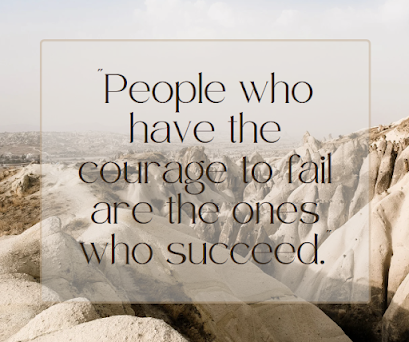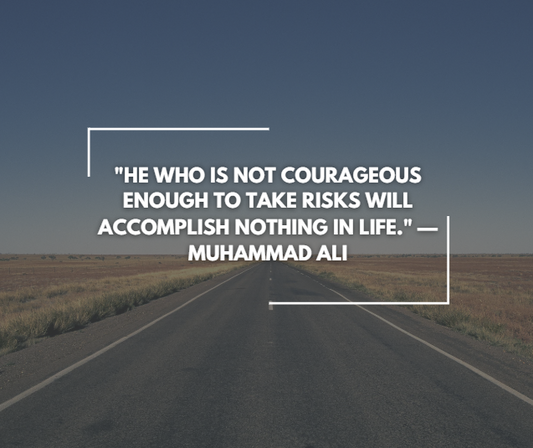"People who have the courage to fail are the ones who succeed." This statement encapsulates a profound truth about the nature of success and resilience. It suggests that embracing failure as a natural part of the journey, rather than fearing it, is a key determinant of ultimate success. In this discussion, we'll explore the significance of failure as a catalyst for growth and the role of courage in achieving success.
Firstly, failure is an inevitable part of any journey towards success. It is rare to find individuals who have achieved significant accomplishments without experiencing setbacks or obstacles along the way. Failure, in its various forms, provides valuable feedback, highlighting areas for improvement and offering opportunities for learning and growth. Those who are willing to confront failure head-on, rather than shying away from it, are better equipped to adapt, innovate, and ultimately succeed in their endeavors.
Moreover, failure often serves as a catalyst for innovation and creativity. When faced with failure, individuals are forced to think outside the box, explore alternative solutions, and challenge conventional wisdom. This process of experimentation and iteration can lead to breakthroughs and discoveries that may not have been possible otherwise. In this sense, failure is not only a teacher but also a driver of progress and innovation.
Additionally, failure builds resilience and mental toughness, which are essential qualities for success. When individuals experience failure, they are forced to confront their fears, doubts, and insecurities. This process of overcoming adversity strengthens their resolve, enhances their problem-solving skills, and cultivates a sense of perseverance and determination. As a result, they become better equipped to navigate through future challenges and setbacks with grace and resilience.
Furthermore, failure fosters humility and a growth mindset, both of which are critical for long-term success. When individuals fail, they are humbled by the realization that they do not have all the answers and that there is always room for improvement. This humility allows them to seek feedback, learn from their mistakes, and continuously strive for excellence. Moreover, individuals who embrace a growth mindset view failure not as a reflection of their abilities but as an opportunity for growth and development. They understand that their potential is not fixed but can be cultivated through effort, perseverance, and resilience.
Courage is the catalyst that allows individuals to confront failure and turn it into a stepping stone for success. It takes courage to pursue ambitious goals, knowing that failure is a possibility. It takes courage to take risks, step out of one's comfort zone, and embrace uncertainty. And it takes courage to persevere in the face of setbacks and challenges, refusing to be deterred by temporary defeats.
In conclusion, "People who have the courage to fail are the ones who succeed" underscores the transformative power of failure and the importance of courage in achieving success. Failure is not an endpoint but a stepping stone on the path to success. It provides valuable lessons, fosters resilience, and cultivates a growth mindset. By embracing failure with courage and resilience, individuals can harness its transformative potential and ultimately achieve their highest aspirations.



.jpg)


